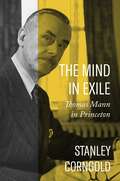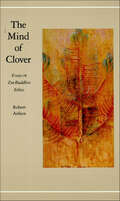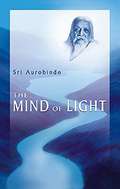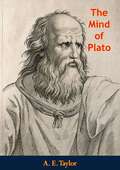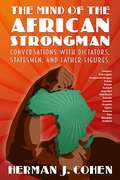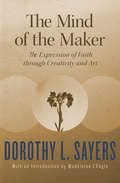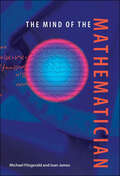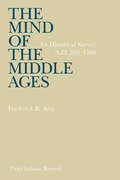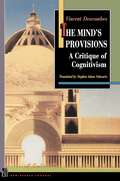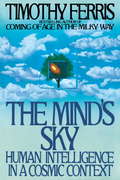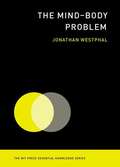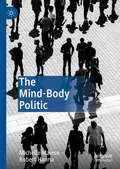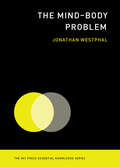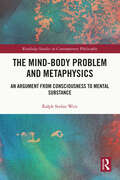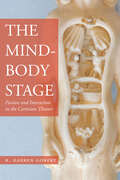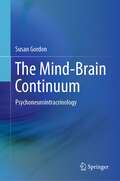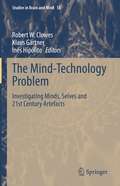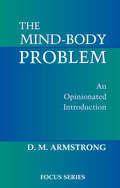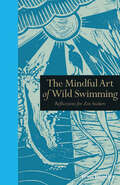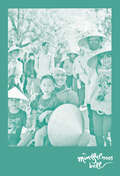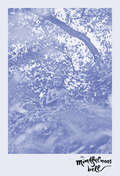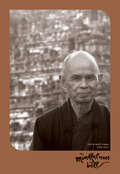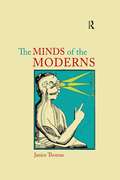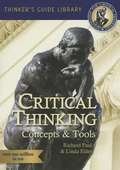- Table View
- List View
The Mind in Exile: Thomas Mann in Princeton
by Stanley CorngoldA unique look at Thomas Mann’s intellectual and political transformation during the crucial years of his exile in the United StatesIn September 1938, Thomas Mann, the Nobel Prize–winning author of Death in Venice and The Magic Mountain, fled Nazi Germany for the United States. Heralded as “the greatest living man of letters,” Mann settled in Princeton, New Jersey, where, for nearly three years, he was stunningly productive as a novelist, university lecturer, and public intellectual. In The Mind in Exile, Stanley Corngold portrays in vivid detail this crucial station in Mann’s journey from arch-European conservative to liberal conservative to ardent social democrat.On the knife-edge of an exile that would last fully fourteen years, Mann declared, “Where I am, there is Germany. I carry my German culture in me.” At Princeton, Mann nourished an authentic German culture that he furiously observed was “going to the dogs” under Hitler. Here, he wrote great chunks of his brilliant novel Lotte in Weimar (The Beloved Returns); the witty novella The Transposed Heads; and the first chapters of Joseph the Provider, which contain intimations of his beloved President Roosevelt’s economic policies. Each of Mann’s university lectures—on Goethe, Freud, Wagner—attracted nearly 1,000 auditors, among them the baseball catcher, linguist, and O.S.S. spy Moe Berg. Meanwhile, Mann had the determination to travel throughout the United States, where he delivered countless speeches in defense of democratic values.In Princeton, Mann exercised his “stupendous capacity for work” in a circle of friends, all highly accomplished exiles, including Hermann Broch, Albert Einstein, and Erich Kahler. The Mind in Exile portrays this luminous constellation of intellectuals at an extraordinary time and place.
The Mind of Clover: Essays in Zen Buddhist Ethics
by Robert AitkenIn Taking the Path of Zen, Robert Aitken provided a concise guide to zazen (Zen meditation) and other aspects of the practice of Zen. In The Mind of Clover he addresses the world beyond the zazen cushions, illuminating issues of appropriate personal and social action through an exploration of the philosophical complexities of Zen ethics. Aitken's approach is clear and sure as he shows how our minds can be as nurturing as clover, which enriches the soil and benefits the environment as it grows. The opening chapters discuss the Ten Grave Precepts of Zen, which, Aitken points out, are "not commandments etched in stone but expressions of inspiration written in something more fluid than water." Aitken approaches these precepts, the core of Zen ethics, from several perspectives, offering many layers of interpretation. Like ripples in a pond, the circles of his interpretation increasingly widen, and he expands his focus to confront corporate theft and oppression, the role of women in Zen and society, abortion, nuclear war, pollution of the environment, and other concerns.The Mind of Clover champions the cause of personal responsibility in modern society, encouraging nonviolent activism based on clear convictions. It is a guide that engages, that invites us to realize our own potential for confident and responsible action.
The Mind of Light
by Sri AurobindoThe book is a guide to the future evolution of consciousness. The text includes an added section on The Teaching of Sri Aurobindo as a general overview, as well as an extensive annotated bibliography and introduction by Dr. Robert McDermott.
The Mind of Plato
by A. E. TaylorThrough his own writings and inspiration of Aristotle and countless others, Plato continues to influence every area of philosophic thought, to say nothing of his enormous influence on Christian theology. His dramatic dialogues, including Republic, the monumental treatise on the ideal state, render him one of the greatest of Greek literary geniuses.In this concise analysis, eminent Plato scholar A. E. Taylor examines the philosopher's theory of knowledge and doctrine of ideas; the ideal of the philosopher-king; the social system advocated in Republic; judgments on democracy; and belief in the immortality of the soul. Also considered: Plato's relationship with his master, Socrates; contribution to the idea of university education; attack on art; abstention from public life; anticipation of Copernicus. Taylor also mentions historical misunderstandings of the one he deems the most original and influential of all philosophers.-Print ed.“A. E. Taylor’s THE MIND OF PLATO is the work of a scholar of great eminence and the best brief introduction to Plato that I know.”—JOHN WILD“This short work, by one of the great Platonic authorities, presents the career and thought of Plato without the dogmatic, technical, or sentimental clichés found in many expositions of Platonism.”-RICHARD McKEON
The Mind of the African Strongman: Conversations With Dictators, Statesmen, and Father Figures
by Herman CohenWith The Mind of the African Strongman, Herman J. Cohen, career ambassador and former Assistant Secretary of State, takes a look at what has helped and what has hindered economic development and democracy in Africa since the end of colonialism. <P><P>Despite access to vast natural resources and decades of international development aid, why have so many African countries failed to keep the promises made to their people? <P><P>With wit and a sharp analytical eye, Ambassador Cohen reflects on nearly four decades of work throughout the continent, sharing stories of his personal encounters with some of Africa's most legendary leaders. From Nelson Mandela to Muammar Gaddafi, Cohen gives readers a never-before-seen look at the men who defined modern Africa, as well as a behind-the-scenes account of dealing with U.S. Presidents, Secretaries of State, and other key leaders shaping U.S. foreign policy toward Africa in the the post-colonial / Cold War era. <P><P>Ambassador Cohen's historical analysis shows how today's African leaders can fulfill the continent's economic and democratic potential.
The Mind of the Maker: The Expression of Faith through Creativity and Art (Library Of Anglican Spirituality Ser.)
by Dorothy L. SayersAn investigation into the nature of God and creativity from the author of the Lord Peter Wimsey Mysteries, with an introduction by Madeleine L&’Engle. From the first pages of Genesis, it is clear that God and man share one vital trait: the ability to create great works out of nothing. More than any other group, artists feel impelled to create, and this urge brings them closer to God. By contemplating the creative drive of humanity, we can better understand the works of God, and by reading deeply into the tenets of Christianity, we can better understand the creative spirit of man. Dorothy L. Sayers explores the concept of the Holy Trinity within the context of invention: the creative idea, the creative energy, and the creative power. In this searching, wide-ranging treatise, one of the greatest minds of the twentieth century shows us what it means to be an artist—and what it takes to make humankind.
The Mind of the Mathematician
by Michael Fitzgerald Ioan JamesWhat makes mathematicians tick? How do their minds process formulas and concepts that, for most of the rest of the world’s population, remain mysterious and beyond comprehension? Is there a connection between mathematical creativity and mental illness?In The Mind of the Mathematician, internationally famous mathematician Ioan James and accomplished psychiatrist Michael Fitzgerald look at the complex world of mathematics and the mind. Together they explore the behavior and personality traits that tend to fit the profile of a mathematician. They discuss mathematics and the arts, savants, gender and mathematical ability, and the impact of autism, personality disorders, and mood disorders. These topics, together with a succinct analysis of some of the great mathematical personalities of the past three centuries, combine to form an eclectic and fascinating blend of story and scientific inquiry.
The Mind of the Mathematician
by Michael Fitzgerald Ioan JamesAn intriguing look at the psychology and personality of mathematicians, with profiles of twenty prominent figures in the field. What makes mathematicians tick? How do their minds process formulas and concepts that, for most of the rest of the world&’s population, remain mysterious and beyond comprehension? Is there a connection between mathematical creativity and mental illness? In The Mind of the Mathematician, internationally famous mathematician Ioan James and accomplished psychiatrist Michael Fitzgerald look at the complex world of mathematics and the mind. Together they explore the behavior and personality traits that tend to fit the profile of a mathematician. They discuss mathematics and the arts, savants, gender and mathematical ability, and the impact of autism, personality disorders, and mood disorders. These topics, together with a succinct analysis of some of the great mathematical personalities of the past three centuries, combine to form an eclectic and fascinating blend of story and scientific inquiry. &“The authors&’ careful treatments are an especially welcome addition to a genre riddled with apocryphal anecdotes and shoddy scholarship.&” —Nature
The Mind of the Middle Ages: An Historical Survey
by Frederick B. Artz"This is the third edition of a near standard survey of the intellectual life of the age of faith. Artz on the arts, as on philosophy, politics and other aspects of culture, makes lively and informative reading."—The Washington Post
The Mind's Provisions: A Critique of Cognitivism (New French Thought Series)
by Vincent DescombesVincent Descombes brings together an astonishingly large body of philosophical and anthropological thought to present a thoroughgoing critique of contemporary cognitivism and to develop a powerful new philosophy of the mind.Beginning with a critical examination of American cognitivism and French structuralism, Descombes launches a more general critique of all philosophies that view the mind in strictly causal terms and suppose that the brain--and not the person--thinks. Providing a broad historical perspective, Descombes draws surprising links between cognitivism and earlier anthropological projects, such as Lévi-Strauss's work on the symbolic status of myths. He identifies as incoherent both the belief that mental states are detached from the world and the idea that states of mind are brain states; these assumptions beg the question of the relation between mind and brain.In place of cognitivism, Descombes offers an anthropologically based theory of mind that emphasizes the mind's collective nature. Drawing on Wittgenstein, he maintains that mental acts are properly attributed to the person, not the brain, and that states of mind, far from being detached from the world, require a historical and cultural context for their very intelligibility.Available in English for the first time, this is the most outstanding work of one of France's finest contemporary philosophers. It provides a much-needed link between the continental and Anglo-American traditions, and its impact will extend beyond philosophy to anthropology, psychology, critical theory, and French studies.
The Mind's Sky: Human Intelligence in a Cosmic Context
by Timothy FerrisThe bestselling author of Coming of Age in the Milky Way brilliantly synthesizes inner and outer space, brain-mind science and SETI in this penetrating examination of the universe.
The Mind--Body Problem
by Jonathan WestphalPhilosophers from Descartes to Kripke have struggled with the glittering prize of modern and contemporary philosophy: the mind-body problem. The brain is physical. If the mind is physical, we cannot see how. If we cannot see how the mind is physical, we cannot see how it can interact with the body. And if the mind is not physical, it cannot interact with the body. Or so it seems. In this book the philosopher Jonathan Westphal examines the mind-body problem in detail, laying out the reasoning behind the solutions that have been offered in the past and presenting his own proposal. The sharp focus on the mind-body problem, a problem that is not about the self, or consciousness, or the soul, or anything other than the mind and the body, helps clarify both problem and solutions. Westphal outlines the history of the mind-body problem, beginning with Descartes. He describes mind-body dualism, which claims that the mind and the body are two different and separate things, nonphysical and physical, and he also examines physicalist theories of mind; antimaterialism, which proposes limits to physicalism and introduces the idea of qualia; and scientific theories of consciousness. Finally, Westphal examines the largely forgotten neutral monist theories of mind and body, held by Ernst Mach, William James, and Bertrand Russell, which attempt neither to extract mind from matter nor to dissolve matter into mind. Westphal proposes his own version of neutral monism. This version is unique among neutral monist theories in offering an account of mind-body interaction.
The Mind-Body Politic
by Robert Hanna Michelle MaieseBuilding on contemporary research in embodied cognition, enactivism, and the extended mind, this book explores how social institutions in contemporary neoliberal nation-states systematically affect our thoughts, feelings, and agency. Human beings are, necessarily, social animals who create and belong to social institutions. But social institutions take on a life of their own, and literally shape the minds of all those who belong to them, for better or worse, usually without their being self-consciously aware of it. Indeed, in contemporary neoliberal societies, it is generally for the worse. In The Mind-Body Politic, Michelle Maiese and Robert Hanna work out a new critique of contemporary social institutions by deploying the special standpoint of the philosophy of mind—in particular, the special standpoint of the philosophy of what they call essentially embodied minds—and make a set of concrete, positive proposals for radically changing both these social institutions and also our essentially embodied lives for the better.
The Mind-Body Problem (The MIT Press Essential Knowledge Series)
by Jonathan WestphalAn introduction to the mind–body problem, covering all the proposed solutions and offering a powerful new one. Philosophers from Descartes to Kripke have struggled with the glittering prize of modern and contemporary philosophy: the mind-body problem. The brain is physical. If the mind is physical, we cannot see how. If we cannot see how the mind is physical, we cannot see how it can interact with the body. And if the mind is not physical, it cannot interact with the body. Or so it seems.In this book the philosopher Jonathan Westphal examines the mind-body problem in detail, laying out the reasoning behind the solutions that have been offered in the past and presenting his own proposal. The sharp focus on the mind-body problem, a problem that is not about the self, or consciousness, or the soul, or anything other than the mind and the body, helps clarify both problem and solutions. Westphal outlines the history of the mind-body problem, beginning with Descartes. He describes mind-body dualism, which claims that the mind and the body are two different and separate things, nonphysical and physical, and he also examines physicalist theories of mind; antimaterialism, which proposes limits to physicalism and introduces the idea of qualia; and scientific theories of consciousness. Finally, Westphal examines the largely forgotten neutral monist theories of mind and body, held by Ernst Mach, William James, and Bertrand Russell, which attempt neither to extract mind from matter nor to dissolve matter into mind. Westphal proposes his own version of neutral monism. This version is unique among neutral monist theories in offering an account of mind-body interaction.
The Mind-Body Problem and Metaphysics: An Argument from Consciousness to Mental Substance (Routledge Studies in Contemporary Philosophy)
by Ralph Stefan WeirThis book evaluates the widespread preference in philosophy of mind for varieties of property dualism over other alternatives to physicalism. It takes the standard motivations for property dualism as a starting point and argues that these lead directly to nonphysical substances resembling the soul of traditional metaphysics. In the first half of the book, the author clarifies what is at issue in the choice between theories that posit nonphysical properties only and those that posit nonphysical substances. The crucial question, he argues, is whether one posits nonphysical things that satisfy an Aristotelian-Cartesian independence definition of substance: nonphysical things that could exist in the absence of anything else. In the second half, the author argues that standard and Russellian monist forms of property dualism are far less plausible than we usually suppose. Most significantly, the presuppositions of one of the leading arguments for property dualism, the conceivability argument, lead by parity of reasoning to the view that conscious subjects are nonphysical substances. He concludes that if you posit nonphysical properties in response to the mind-body problem, then you should be prepared to posit nonphysical substances as well. Mainstream philosophy of mind must take nonphysical substances far more seriously than it has done for the best part of a century. The Mind-Body Problem and Metaphysics will be of interest to scholars and advanced students working in philosophy of mind, metaphysics, and the history of philosophy.
The Mind-Body Stage: Passion and Interaction in the Cartesian Theater
by R. Darren GobertDescartes's notion of subjectivity changed the way characters would be written, performed by actors, and received by audiences. His coordinate system reshaped how theatrical space would be conceived and built. His theory of the passions revolutionized our understanding of the emotional exchange between spectacle and spectators. Yet theater scholars have not seen Descartes's transformational impact on theater history. Nor have philosophers looked to this history to understand his reception and impact. After Descartes, playwrights put Cartesian characters on the stage and thematized their rational workings. Actors adapted their performances to account for new models of subjectivity and physiology. Critics theorized the theater's emotional and ethical benefits in Cartesian terms. Architects fostered these benefits by altering their designs. The Mind-Body Stage provides a dazzlingly original picture of one of the most consequential and confusing periods in the histories of modern theater and philosophy. Interdisciplinary and comparatist in scope, it uses methodological techniques from literary study, philosophy, theater history, and performance studies and draws on scores of documents (including letters, libretti, religious jeremiads, aesthetic treatises, and architectural plans) from several countries.
The Mind-Brain Continuum: Psychoneurointracrinology
by Susan GordonThis insightful book proposes a holistic theory of the development of self, drawing on interdisciplinary literature in existential-phenomenology, neurophenomenology, intracrinology, endocrinology, and naturopathic medicine. The psychoneurointracrine hypothesis bridges the gap between the mind and brain, providing a framework to explain the complex system that facilitates development of one’s sense of self and well-being. The book challenges assumptions in present day neuroscience and psychiatry, placing the mind and brain on a continuum of health and growth rather than reducing the study of human consciousness to neurobiological terms and pathological classifications.“In this landmark book, Susan Gordon presents a bold hypothesis, one that underscores the importance of psychoneurointracrine activity and links it to female neurology and the development of one’s sense of self. She brilliantly places this activity, which serves as a mind-body bridge, within the frameworks of neurophenomenology and non-linear dynamics. Her psychoneurointracrine hypothesis is a tour de force, one that is holistic, integrating intracrinology with psychology and neurology. This hypothesis undercuts the current assumption that the mind is an epiphenomenon of the brain, creating a paradigm that impacts science’s understanding of behavior, experience, consciousness, and human agency.”Stanley Krippner, PhD, Affiliated Distinguished Faculty, California Institute of Integral Studies, San Francisco, CA“In her fascinating book, Susan Gordon develops a novel theory about the biological connection between mind, brain, and organism. Drawing on empirical research on the role of the female hormonal system in basal states of self and mood, she shows that the biochemistry of the endocrine system must be viewed as an indispensable foundation for the emergence of embodied self-awareness. The homeostasis and hormonal balance of the organism is integral to the sense of well-being and the development of meaning, but it is also continually modulated and influenced by the subject’s experience of his or her world. She makes a decisive contribution to a theory of embodiment that goes far beyond a computational theory of the brain to focus on the biochemical-organismic processes at the root of the mind.”Thomas Fuchs, MD, PhD, Karl Jaspers Professor of Philosophy and Psychiatry, University of Heidelberg, DE
The Mind-Technology Problem: Investigating Minds, Selves and 21st Century Artefacts (Studies in Brain and Mind #18)
by Inês Hipólito Robert W. Clowes Klaus GärtnerThis edited book deepens the engagement between 21st century philosophy of mind and the emerging technologies which are transforming our environment. Many new technologies appear to have important implications for the human mind, the nature of our cognition, our sense of identity and even perhaps what we think human beings are. They prompt questions such as: Would an uploaded mind be 'me'? Does our reliance on smart phones, or wearable gadgets enhance or diminish the human mind? and: How does our deep reliance upon ambient artificial intelligence change the shape of the human mind? Readers will discover the best philosophical analysis of what current and near future 21st technology means for the metaphysics of mind. Important questions are addressed on matters relating to the extended mind and the distributed self. Expert authors explore the role that the ubiquitous smart phone might have in creating new forms of self-knowledge. They consider machine consciousness, brain enhancement and smart ambient technology, and what they can tell us about phenomenal consciousness. While ideas of artificial general intelligence, cognitive enhancements and the smart environment are widely commented on, serious analysis of their philosophical implications is only getting started. These contributions from top scholars are therefore very timely, and are of particular relevance to students and scholars of the philosophy of mind, philosophy of technology, computer science and psychology.
The Mind-body Problem: An Opinionated Introduction (Focus Ser.)
by D. M. ArmstrongThe relation of mind to body has been argued about by philosophers for centuries. The Mind-Body Problem: An Opinionated Introduction presents the problem as a debate between materialists about the mind and their opponents. After examining the views of Descartes, Hume and Thomas Huxley the debate is traced through the twentieth century to the present day. The emphasis is always on the arguments used, and the way one position develops from another. By the end of the book the reader is afforded both a grasp of the state of the controversy, and how we got there.
The Mindful Art of Wild Swimming: Reflections for Zen Seekers (Mindfulness Ser.)
by Tessa Wardley“Turn your outdoor bathing into an enriching meditation with this exploration into the emotional benefits of swimming in nature.” —Health & FitnessThe Mindful Art of Wild Swimming explores how swimming in rivers, lakes, and seas is the very epitome of conscious living. Zen-seeker Tessa Wardley reconnects the physical and spiritual cycles of life to the changing seasons and flow of wild waters worldwide and leads the reader on to a mindful journey through the natural world. Combining expert insight and personal anecdote, she shares with sparkling clarity why our relationship with open water is so fundamental to pure wellbeing, and reveals how wild swimming can be the ultimate Zen meditation.“Tessa Wardley is a keen and knowledgeable guide” —Times Literary Supplement
The Mindfulness Bell 91: A journal of the art of mindful living in the Plum Village tradition of Thich Nhat Hanh
by Mindfulness Bell, TheThis issue focuses on the path of practice with Buddhist psychology and neuroscience for individual and collective health. In "Rebuilding Health," Thích Nhất Hạnh teaches us to stop running and find healing.Dharma teacher Jo-ann Rosen and the EMBRACE Sangha offer insights on seeing the practice through a neuroscientific and trauma-sensitive lens."Neuroscience Infused Body-scan," a Dharma talk by Brother Pháp Linh.Practitioners share about healing trauma and mindfulness in public health research.Sharings from Happy Farm, Wake Up, Wake Up Schools, the Earth Holder Community, and the Thích Nhất Hạnh Foundation.
The Mindfulness Bell: A journal of the art of mindful living in the Plum Village tradition of Thich Nhat Hanh
by Mindfulness Bell, TheA journal of the art of mindful living in the Plum Village tradition of Thich Nhat Hanh - Issue 90This issue features teachings from Thich Nhat Hanh, Dr Larry Ward, and Sister Boi Nghiem:Thich Nhat Hanh on the intimate connection between suffering and happinessDr Larry Ward on caring for our traumatic experiencesBrother Peace on losing both his parents to depression and suicideDharma teacher Valerie Brown on inspiring hope in a world in needSister Bội Nghiêm on understanding relationships and suffering in the LGBTQIA+ communityUpdates from ARISE Sangha, the Earth Holder Community, Happy Farm, Wake Up International, Wake Up Schools, and the Thich Nhat Hanh Foundation.Practitioners share about spirituality and racial equity, being on the front lines of climate action, practicing online, and much more
The Mindfulness Bell: A journal of the art of mindful living in the Plum Village tradition of Thich Nhat Hanh
by The Mindfulness BellA journal of the art of mindful living in the Plum Village tradition of Thich Nhat Hanh.The Mindfulness Bell would like to honor Thầy&’s transformation by offering this curated collection of highlights from the week of memorial ceremonies; teachings from Thích Nhất Hạnh on death, impermanence, and interbeing; and reflections and recollections of Thầy from elder monastics, lay Dharma teachers, and friends.Whats inside?-Letter from the Editor By Brother Phap Luu-What Can I Say About My Beloved Teacher? By Dr. Larry Ward-Discourse on Taking Refuge in the Island of Oneself
The Minds of the Moderns: Rationalism, Empiricism and Philosophy of Mind
by Janice ThomasThis is a comprehensive examination of the ideas of the early modern philosophers on the nature of mind. Taking Descartes, Spinoza, Leibniz, Locke, Berkeley, and Hume in turn, Janice Thomas presents an authoritative and critical assessment of each of these canonical thinkers' views of the notion of mind. The book examines each philosopher's position on five key topics: the metaphysical character of minds and mental states; the nature and scope of introspection and self-knowledge; the nature of consciousness; the problem of mental causation and the nature of representation and intentionality. The exposition and examination of their positions is informed by present-day debates in the philosophy of mind and the philosophy of psychology so that students get a clear sense of the importance of these philosophers' ideas, many of which continue to define our current notions of the mental.Again and again, philosophers and students alike come back to the great early modern rationalist and empiricist philosophers for instruction and inspiration. Their views on the philosophy of mind are no exception and as Janice Thomas shows they have much to offer contemporary debates. The book is suitable for undergraduate courses in the philosophy of mind and the many new courses in philosophy of psychology.
The Miniature Guide To Critical Thinking Concepts And Tools
by Richard Paul Linda ElderThis miniature guide, which has sold more than half a million copies, is widely used in teaching and learning, in personal and professional life. It distills the essence of critical thinking into a 24-page, pocket-sized guide. It introduces the interrelated complex of critical thinking concepts and principles implicit in the works of Richard Paul and Linda Elder. This guide is widely used at the college level. It can be used as a critical thinking supplement to any textbook or course.
